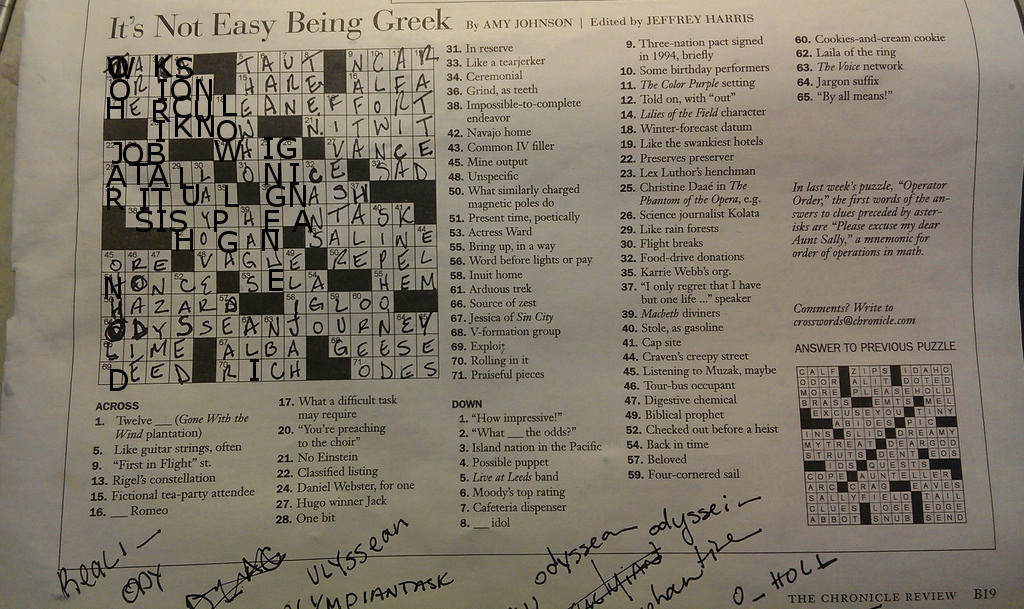Over the years, I've seen lots of reports claiming that they can do precisely that -- the implication being that all we really need to do to avoid heading down the path to mental deterioration is to keep our brains active. You know, instead of relaxing into the mental sloth associated with soap operas and napping, we should simply devote ourselves to puzzle-solving.
But more recently, I've also seen some indications that taking our little gray cells through daily workouts really doesn't make any difference. And I have to admit that some of my elderly friends who are the most confused also maintain the most impressive libraries of highbrow books that they have presumably read over the course of their lifetimes.
Then there are the reports that straddle the fence on this issue -- including a 2011 study concluding that crossword puzzles do indeed delay the onset of dementia by 2.54 years. But eventually decline sets in at an even faster pace among the intellectually fit, so that, in the end, we all end up in the same place.
Still, it seems like it's worth a try, doesn't it? At least crossword puzzles' side effects are practically non-existent, compared with those of the pharmaceuticals that supposedly keep us sharper longer. A 2013 review of the medical literature found that while these drugs may offer some short-term benefits, those benefits last on average just 18 months -- and in the meantime the drugs can cause both headaches and all kinds of nasty GI troubles.
Personally, I think I'll forego the pharmaceuticals in favor of daily coconut oil and sign up for a lifetime subscription to Logic Lovers Logic Problems.

 RSS Feed
RSS Feed